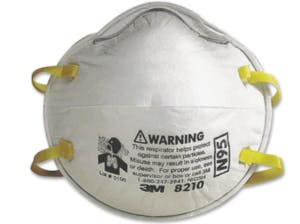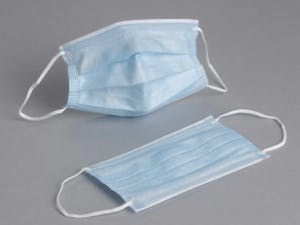Update 4/8/2020:
With new research affecting policy on a daily or weekly basis, it’s critical to stay on top of changing recommendations. Cloth or home-made face covers are now recommended when out in public. Surgical and N95 masks are not recommended, as they should be reserved for health-care workers treating sick patients and are in short supply. According to the CDC website:
CDC recommends wearing cloth face coverings in public settings where other social distancing measures are difficult to maintain (e.g., grocery stores and pharmacies), especially in areas of significant community-based transmission.
CDC also advises the use of simple cloth face coverings to slow the spread of the virus and help people who may have the virus and do not know it from transmitting it to others. Cloth face coverings fashioned from household items or made at home from common materials at low cost can be used as an additional, voluntary public health measure.
Cloth face coverings should not be placed on young children under age 2, anyone who has trouble breathing, or is unconscious, incapacitated or otherwise unable to remove the mask without assistance.
The cloth face coverings recommended are not surgical masks or N-95 respirators. Those are critical supplies that must continue to be reserved for healthcare workers and other medical first responders, as recommended by current CDC guidance.

Should you wear a face mask to your PT or other medical appointments? In the community? According to current guidelines from the CDC:
“Wear a facemask if YOU are sick.
If you are sick: You should wear a facemask when you are around other people (e.g., sharing a room or vehicle) and before you enter a healthcare provider’s office. If you are not able to wear a facemask (for example, because it causes trouble breathing), then you should do your best to cover your coughs and sneezes, and people who are caring for you should wear a facemask if they enter your room. Learn what to do if you are sick.
If you are NOT sick: You do not need to wear a surgical or N95 facemask unless you are caring for someone who is sick (and they are not able to wear a facemask). Facemasks may be in short supply and they should be saved for caregivers.”
The N95 mask with face shield or goggles should be reserved for hospital workers actively engaged in the care of patients with COVID-19 and other contagious illnesses. These masks must be fitted to your face and require instruction on how to donn (put on) or doff (remove) with gloves and gown. If you have extra of these masks it is recommended you donate them to first responders and hospital staff. An N95 mask worn without eye protection and used incorrectly, is worthless and a waste of valuable resources.
 The surgical mask is designed to protect others from YOU. So if you are sick you should wear a mask to avoid coughing or sneezing on others. They will NOT protect you from microscopic viruses (note how loosely they fit). However due to panic buying, even these masks are in short supply. If you have extras that you don’t need, you may want to donate those as well.
The surgical mask is designed to protect others from YOU. So if you are sick you should wear a mask to avoid coughing or sneezing on others. They will NOT protect you from microscopic viruses (note how loosely they fit). However due to panic buying, even these masks are in short supply. If you have extras that you don’t need, you may want to donate those as well.
Bandanas, scarfs etc. These items worn covering the face may remind you not to touch your face. Along with hand washing or sanitizing this is one of the ways you can avoid infection from contaminated surfaces. Just remember that if you touch the outside of the scarf, you have possibly contaminated your hand and should wash or sanitize immediately.
The important thing to realize is that there are appropriate uses for various types of masks and face coverings. Wearing a mask incorrectly may give you a false sense of safety which could lead you to engage in risky behaviors, such as forgetting to wash your hands, getting into an elevator, or attending unnecessary activities in the community — all of which could INCREASE your risk of infection.
